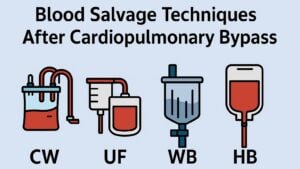The effect and safety of bivalirudin compared with heparin in patients undergoing extracorporeal membrane oxygenation (ECMO) remains unclear. Therefore, we conducted a systematic review and meta-analysis to compare the effectiveness and safety of heparin and bivalirudin in patients who underwent ECMO. We searched Embase, the Cochrane Central Register of Controlled Trials, and MEDLINE. Inclusion criteria included patients (1) undergoing ECMO and (2) receiving bivalirudin or heparin. We excluded studies where the majority of patients switched heparin to bivalirudin or vice versa during the clinical course. The primary outcome was short-term mortality. We presented the results of all analyses with the use of random-effects models. Eleven studies reported short-term mortality. The use of bivalirudin was associated with significantly lower short-term mortality, compared with heparin (odds ratio: 0.71, 95% confidence interval, 0.55-0.92; p = 0.01, I2 = 7%). In this meta-analysis of observational studies, the use of bivalirudin was associated with significantly lower short-term mortality, compared with heparin. Further prospective studies are warranted to clarify this finding.







